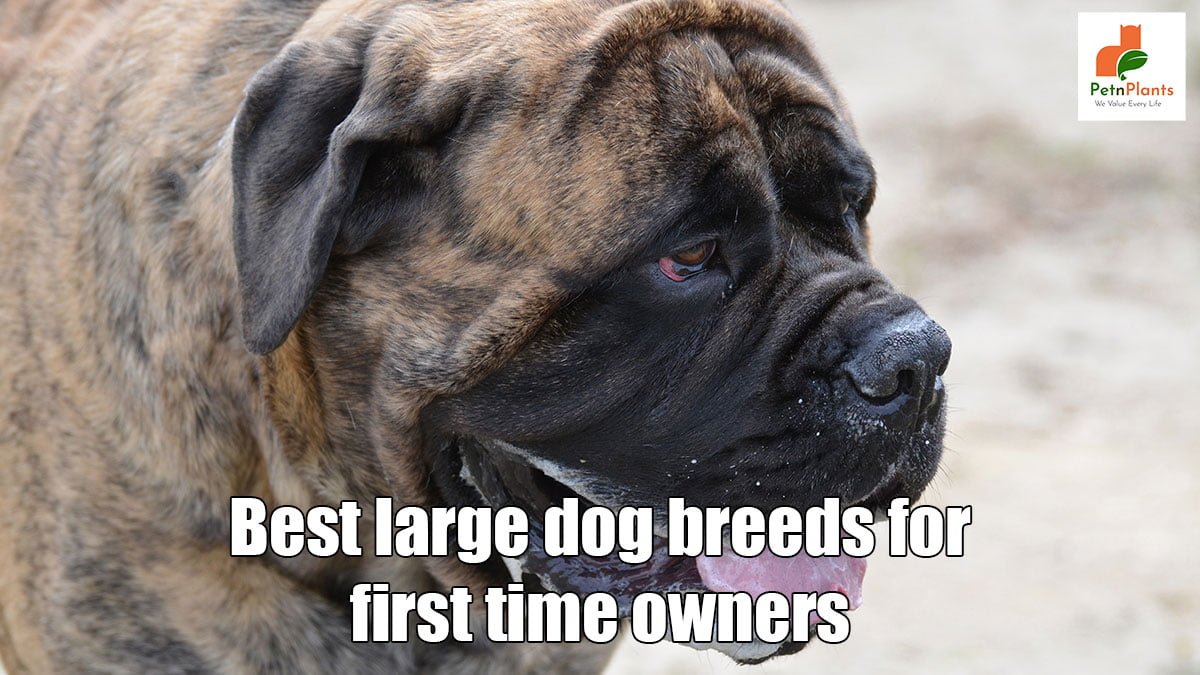How To
Latest
Pet Care
How to Groom Your Dog at Home with the Right Dog Grooming KitMarch 19, 2025
We Value Every Life

Deciding to get a dog is a big decision. It’s not just about picking out the cutest pup at the shelter but also considering if your lifestyle can accommodate a furry friend. If you’re considering getting a large dog, there are more things to consider. Don’t worry; we’re here to help. This blog post will give tips on choosing the best large dog breed for first-time owners. From size and energy level to temperament and training needs, we’ll cover everything you need to know to make the best decision for you and your new furry friend.
Size matters when choosing a dog breed – especially if you’re a first-time owner. The last thing you want is an energetic Great Dane bouncing off the walls of your small apartment. But on the flip side, you don’t want a tiny Chihuahua that could get lost or hurt easily. You need to find a happy medium – a dog that’s big enough to cuddle with but not so big that it’s unmanageable.

Labradors are great dogs for first-time owners and are friendly, outgoing, and easy to train. Labradors are also good with children and other pets. The quintessential family dog, Labs are known for its loving and outgoing personalities. They make great companions and are relatively easy to train. And at an average weight of 55-80lbs, they’re one of the smaller breeds on this list. Labradors are also relatively low-maintenance in grooming; they only need to be brushed once or twice a week.

Golden Retrievers are one of the best large dog breeds for first-time owners. They are intelligent, friendly, and easy to train. Golden Retrievers make great family dogs and are good with children. They need daily exercise and plenty of space to run and play. Golden Retrievers are also known for being good at obedience training and agility trials.

Owning a large dog breed can be very rewarding, but it’s important to research before deciding which one is right for you. German Shepherds are one of the most popular breeds of dogs, and for a good reason! They’re intelligent, loyal, and make great protectors. But they’re also active and require a lot of exercises, so they’re not the best choice for everyone. If you think a German Shepherd is right for you, read on to learn more about what to expect.

Regarding large dog breeds, Beagles are often a top choice for first-time owners. These friendly pups are known for their even temperaments and loving nature, making them great companions for families with kids of all ages. Beagles are also relatively low-maintenance in grooming, and their short coats don’t require much daily brushing or bathing. These dogs are relatively active and need plenty of exercises, so they’re a good fit for homes with spacious yards or nearby parks.

Looking for a big, friendly dog to add to your family? Look no further than the Boxer! This popular breed is known for being loving and loyal, making great additions to any home. Boxers are also relatively easy to train and versatile, so they can fit into any lifestyle. If you’re looking for a furry friend who will always be by your side, the Boxer is the perfect breed!

Mastiffs are large, loyal dogs that make great family pets. They are gentle giants that love to be around people and other animals. Mastiffs are protective of their families and make excellent watchdogs. While they may be too big for some homes, mastiffs are perfect for families looking for a big, lovable dog to add to their household.

Great Danes are among the best large dog breeds for first-time owners. They are gentle giants that are loving and loyal and require some exercise and space but are relatively low maintenance. Great Danes are also good with children and other pets.
Here are some tips for the first time large dog owners:
0